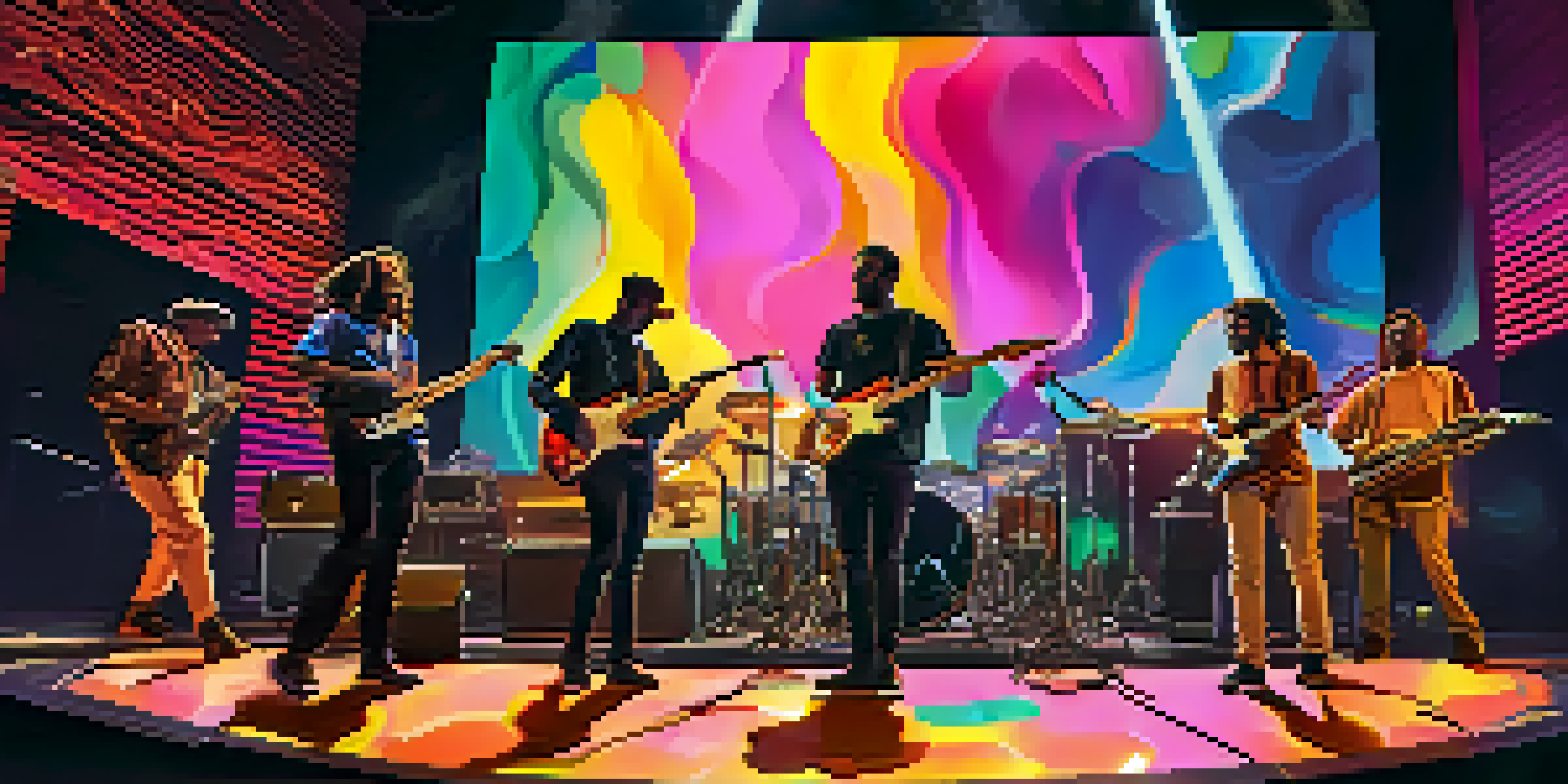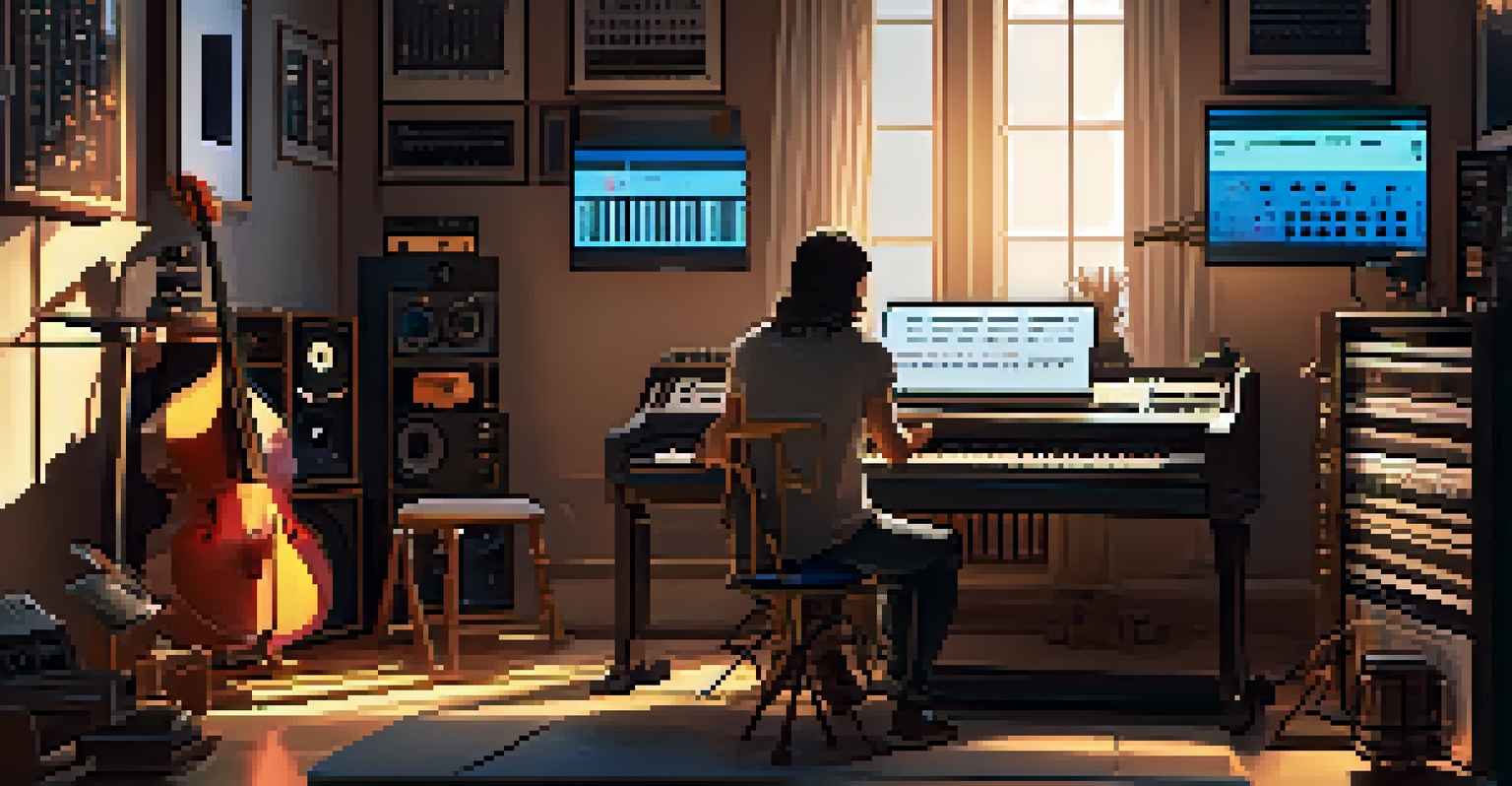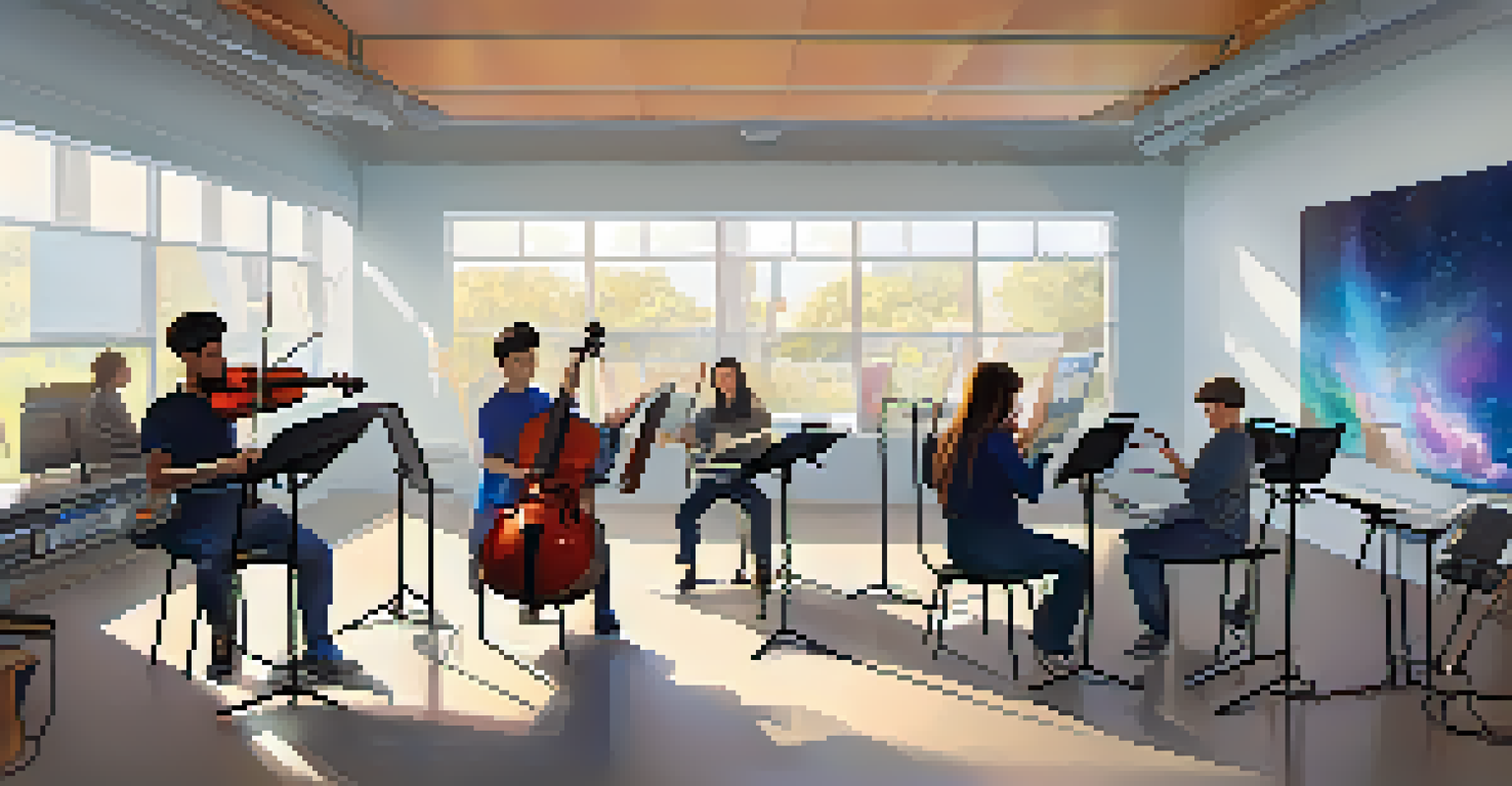Exploring the Intersection of Music and Artificial Intelligence

Understanding the Role of AI in Music Creation
Artificial Intelligence (AI) is rapidly changing the way music is created. By leveraging machine learning algorithms, AI can analyze vast amounts of music data to generate new compositions. This technology allows musicians to explore innovative sounds and styles that they may not have considered, enhancing their creative process.
Music is the shorthand of emotion.
For example, AI-driven tools can help artists compose melodies or suggest chord progressions, serving as a digital collaborator. These tools do not replace human creativity; instead, they augment it, offering fresh perspectives and ideas. This intersection of technology and art is opening new doors for both seasoned musicians and aspiring artists.
As AI continues to evolve, it raises questions about authorship and originality. Who owns a song created with the help of AI? These discussions are vital as they shape the future of music and the role of technology in creative expression.
AI-Driven Music Recommendation Systems
One of the most noticeable impacts of AI in the music industry is through recommendation systems. Platforms like Spotify and Apple Music use AI algorithms to analyze user preferences and listening habits. This technology helps deliver personalized playlists and suggestions, making it easier for listeners to discover new artists and genres.

These systems rely on complex data analysis, considering factors like song tempo, genre, and even the emotional tone of the music. By understanding what users enjoy, AI can create a tailored experience that keeps listeners engaged. It's similar to having a personal DJ who knows exactly what to play next based on your mood.
AI Enhances Music Creation
AI tools augment musicians' creativity by generating new compositions and offering fresh perspectives.
However, this personalization comes with a caveat. While it enhances user experience, it can also lead to algorithmic echo chambers, where listeners are only exposed to a narrow range of music. This raises important questions about diversity in the music industry and the potential for AI to shape our musical tastes.
The Evolution of Music Production with AI Tools
AI is also revolutionizing music production, making it more accessible than ever. Tools like LANDR and Amper Music allow musicians to produce high-quality tracks without needing extensive technical knowledge. These platforms provide automated mixing and mastering services, which were once the domain of professional studios.
Technology is best when it brings people together.
This democratization of music production means that anyone with a creative spark can create and share their music. Imagine a budding artist with a laptop and an idea being able to produce a polished track in a matter of hours. AI tools are empowering a new generation of musicians, breaking down barriers that previously existed.
However, while these tools are incredibly useful, they can also lead to a saturated market. With so many creators having access to production tools, standing out becomes a challenge. Artists must find unique ways to differentiate themselves in a landscape where technology can produce similar sounds.
AI's Impact on Live Music and Performances
The influence of AI extends beyond the studio and into live performances. Artists are increasingly incorporating AI into their shows, creating immersive experiences that captivate audiences. For instance, AI can be used to generate visuals that sync with the music, enhancing the overall atmosphere of a concert.
Additionally, some musicians are experimenting with AI-generated music during live performances. This not only adds an element of surprise but also showcases the potential of technology in real-time creativity. Imagine a concert where the music evolves based on audience reactions, creating a unique experience for everyone present.
Personalized Music Recommendations
AI algorithms analyze user preferences to deliver tailored playlists, enhancing the listening experience.
While this integration of AI into live music is exciting, it also presents challenges. Some purists argue that relying on AI diminishes the authenticity of live performances. Balancing technology and traditional musicianship will be key as artists explore this innovative frontier.
Ethical Considerations in AI Music Creation
As AI becomes more prominent in music creation, ethical considerations have emerged. Questions about copyright, ownership, and the potential for AI to mimic existing artists raise concerns within the industry. When an AI generates a song that closely resembles a famous artist's work, who is responsible for any legal implications?
Moreover, there is the issue of cultural appropriation. AI systems trained on diverse musical styles might inadvertently replicate cultural elements without understanding their significance. This could lead to exploitation of traditions and a lack of respect for the original creators.
Navigating these ethical dilemmas requires open dialogues among artists, technologists, and legal experts. Establishing guidelines and best practices will be essential to ensure that AI's integration into music respects artistic integrity and cultural heritage.
The Future of Collaboration Between Musicians and AI
Looking ahead, the collaboration between musicians and AI appears promising. As technology continues to advance, we can expect even more sophisticated tools that enhance creativity. Musicians may increasingly rely on AI to push the boundaries of their art, leading to innovative genres and styles.
This partnership can also foster a deeper exploration of music theory and composition. By analyzing vast datasets, AI can reveal patterns and techniques that humans might overlook, enriching the learning process for aspiring musicians. It's like having a knowledgeable mentor guiding you through the intricacies of music creation.
Ethical Challenges of AI in Music
The rise of AI in music raises important ethical questions regarding copyright, ownership, and cultural appropriation.
However, this future is not without its challenges. Artists must remain vigilant about their artistic vision and ensure that AI serves as a tool rather than a crutch. Striking the right balance between human creativity and AI assistance will be crucial in shaping the music of tomorrow.
AI in Music Education: Transforming Learning Experiences
AI is also making waves in music education, providing personalized learning experiences for students. Platforms like Yousician use AI to assess a student's playing and offer tailored feedback, helping learners progress at their own pace. This individualized approach can significantly enhance the learning process.
Moreover, AI can adapt to different learning styles, making music education more accessible to diverse audiences. Whether someone is a visual learner or prefers hands-on practice, AI tools can cater to their unique needs, ensuring a more effective educational experience. It's akin to having a personal tutor available 24/7.

As AI continues to evolve in this space, it opens up new possibilities for remote learning and collaboration. Students from different parts of the world can connect and learn from each other, breaking down geographical barriers. This interconnectedness could lead to a richer global music community, fostering creativity and innovation.